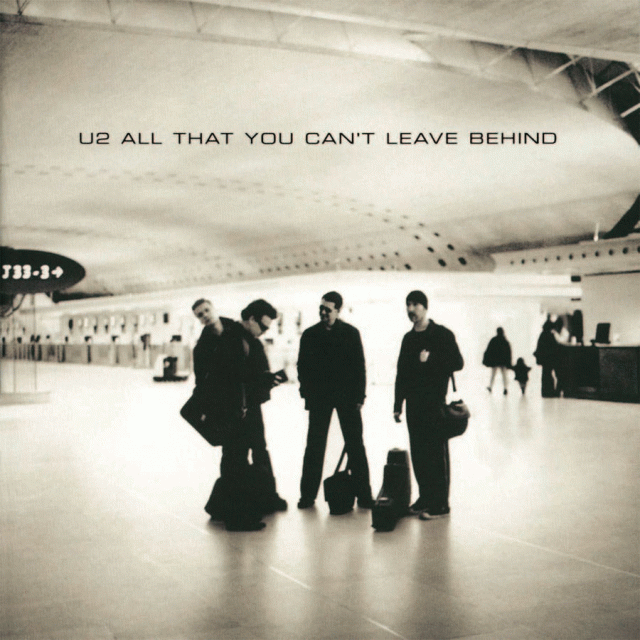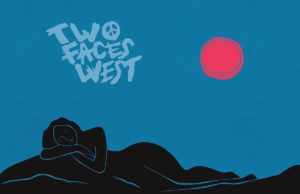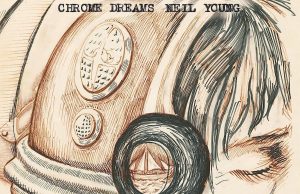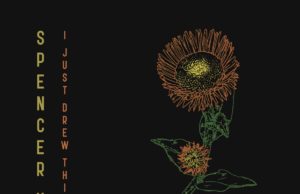Two decades ago, new albums from U2, Limp Bizkit, PJ Harvey and others were spinning away in my portable CD player. Here’s what I had to say about them back then (with some minor editing):
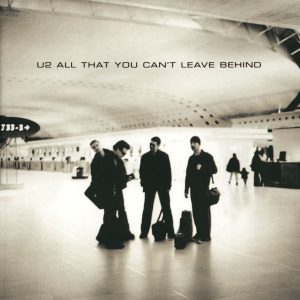 U2
U2
All That You Can’t Leave Behind
New U2 albums normally come loaded with as much extra baggage as Zsa Zsa Gabor on safari. Ever since these Irish rockers bought into their own hype back in the ’80s and started to act like a Very Important Band, they’ve been obsessed with making Very Meaningful Albums filled with Bold Artistic Statements. Like Achtung Baby and Zooropa’s use of chilly electronica as a commentary on mass media. Or Pop’s reliance on disposable dance music as a pronouncement on consumer culture. Or that giant lemon they emerged from on the PopMart tour, which symbolized … well, actually, I don’t know what that was supposed to mean. I doubt even Bono could decipher that one. And frankly, you have to wonder: Is all this crap — the zealous righteousness, the high-concept productions, the sheer stultifying gravity of being U2 — as tiring to them as it is to the rest of us?
After hearing their 12th album All That You Can’t Leave Behind, something tells me the answer is yes. And that U2 have finally decided to do something about it. In a nutshell, they’ve decided to lighten up. Musically, thematically, emotionally, spiritually, you name it, All That You Can’t Leave Behind finds them shucking off their messianic mantles, crumpling up the position papers and getting back to where they once belonged — at the forefront of guitar-based arena rock.
In keeping with the cover picture of the band toting carry-ons in the airport, All That You Can’t Leave Behind finds the boys travelling light. Recorded in Dublin and France with the aid of longtime running mates Brian Eno and Daniel Lanois, the album jettisons the off-putting electronic murk of Zooropa and the ironic high-gloss techno of Pop for more earnest, soulful rock and pop. Leadoff track and single Beautiful Day is typical of the disc’s vibe. Edge’s scratchy, signature guitar lines jangle and ring above the snappy rattle and hum of bassist Adam Clayton and drummer Larry Mullen. Eno’s keyboards are mainly confined to the role of tasteful accompaniment and background atmospherics, subtly textured backdrops for the band to paint over.
For the most part, they steer closer to the earth tones of Joshua Tree than the day-glo tints of Pop. Stuck in a Moment You Can’t Get Out Of, with its Memphis-soul groove and Bono’s emotive vocal, could pass for an old Al Green cover. Similarly, In a Little While and Grace’s slippery guitar lines and unadorned melancholy suggest the rainy-night soul of vintage Brook Benton or Otis Redding numbers. In a rootisier vein there’s Wild Honey, a fluidly loping acoustic strummer Wilco would not be ashamed of. At the rockier end of the scale are the buzzy, funky Britpop of Elevation and the smoky tom-tom thumper New York.
Whatever the setting, though, Bono sticks to the unpretentious program. You won’t find much of his pointed preaching on religion, war, poverty or philosophy in these 11 songs’ grooves. Instead of acting globally, he’s thinking locally, urging us to embrace the joy of a Beautiful Day, offering a simple wish for Peace on Earth, and reminding us again and again that if we want to make it to a brighter future, we have to leave the darkness of the past behind.
Obviously, it’s a message U2 have taken to heart. Natural, unforced, relaxed, organic, free-flowing, sincere and satisfying — All That You Can’t Leave Behind is all that and more.
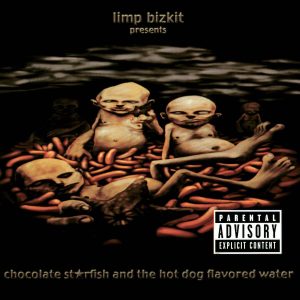 Limp Bizkit
Limp Bizkit
Chocolate Starfish and the Hot Dog Flavored Water
Some bands are so great you forget their annoying moments. Limp Bizkit are so annoying you forget their great moments. And yes, despite its idiotic title, Chocolate Starfish and the yadda yadda has some great moments. Tighter and harder-hitting than last year’s Significant Other, these 15 songs find the band hitting a decent stride. Guitarist Wes Borland’s eccentric spazz-god licks, DJ Lethal’s lead-turntable frenzy and the rhythm section’s elastic wallop gel solidly here, forging rap-metal anthems like My Generation (not the Who song) into explosive mook-fest grenades. Then the increasingly irritating Fred Durst ruins it with his nasal whine, adolescent angst and naked fame-lust. On opener Hot Dog, he uses the F-word 50-odd times to titillate teens and perturb parents, then sinks even lower on the creativity scale by biting the chorus of Nine Inch Nails’ Closer. From there, it’s a downhill slide into Fred’s self-congratulatory world of calculated celebrity cameos: Scott Weiland (for alt-rock cred), rappers DMX, Redman and Method Man (for hip-hop cred), Ben Stiller (for Hollywood cred). Fred should do what he does best — hang out at Skybar and kiss celebrity butt — and let Limp Bizkit be a great band.
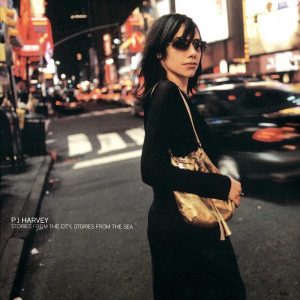 PJ Harvey
PJ Harvey
Stories From the City, Stories From the Sea
Before I knew better, I used to think Polly Jean Harvey tried too hard. From the in-your-face sexuality of her image to the art-of-noise production of her last couple of albums, it sometimes seemed like she was burying herself and her songs under a layer of unnecessary, distancing artifice. But her fifth full-length Stories From the City, Stories From the Sea has helped me see the light. Inspired by a six-month relocation to New York, this self-produced effort strips away the muck and gloss of Is This Desire? to let Harvey’s songs stand or fall on their own. Most stand, from Patti Smith-inspired guitar mantras like Good Fortune and This is Love (with its memorable couplet, “I can’t believe life is so complex, when I just wanna sit here and watch you undress.”) to a trio of dark ’n’ moody brooders featuring Radiohead’s Thom Yorke. Stories might not be Harvey’s finest moment — not much is going to top Dry. But it is her least contrived album in some time. That’s a happy ending in my book.
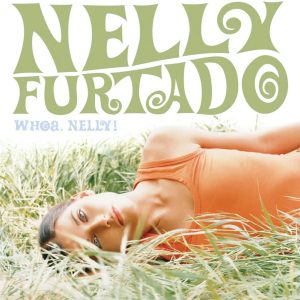 Nelly Furtado
Nelly Furtado
Whoa, Nelly!
Toronto singer-songwriter Nelly Furtado has come from straight outta nowhere to be pop music’s newest It Girl. It’s no mystery why — she writes her own material; she has a voice that incorporates both a little-girl pout and an earthy sexuality; and she’s pretty easy on the eyes. Fittingly, her debut disc Whoa, Nelly! is pretty easy on the years. These tracks are universally pleasant and infectiously poppy, with Furtado spinning soulful hip-pop melodies a la TLC or Luscious Jackson over a quirky bed of beeping, clattering hippie-slack studio weirdness. Whether she lives up to her potential and becomes the next queen of pop remains to be seen, but there’s little doubt she’s got it.
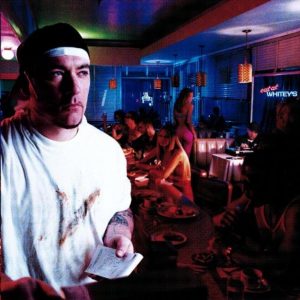 Everlast
Everlast
Eat at Whitey’s
With 1998’s Whitey Ford Sings the Blues, onetime white-boy gangster rapper Everlast reinvented himself as an acoustic roots-hopper similar to Beck. The followup Eat at Whitey’s picks up right where he left off. On its 13 tracks, Whitey dishes up a similar selection of slow-rolling grooves, choppy acoustic guitars and Everlast’s crushed-gravel vocals. What keeps it from getting stale fast are his low-key, bluesy delivery — a welcome change from bellowing nincompoops like Kid Rock — and some stellar cameos from the likes of Merry Clayton (the gal who sang on Gimme Shelter) and Carlos Santana (returning the favour for Put Your Lights On from Supernatural). Admittedly, sometimes Eat at Whitey’s feels reheated, but for seconds, it still satisfies.
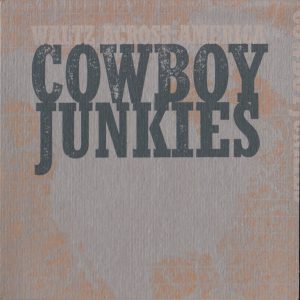 Cowboy Junkies
Cowboy Junkies
Waltz Across America
Independence seems to agree with Cowboy Junkies. After Universal’s reorganization a couple of years back — and not incidentally, after releasing one of the lesser discs of their career, Miles From our Home — these Toronto country balladeers found themselves without a label. Rather than leap into another corporate marriage, they’ve been flying solo. Last year, they issued the strong collection Rarities, B-Sides and Slow Sad Waltzes via their Web site. Ironically, their old label picked it up for distribution. I wouldn’t be surprised if this live set follows a similar path. A compelling snapshot of the Junkies’ mesmerizing live shows, Waltz Across America features a varied set list that hits all the touchstones of their long career — the sparse, spectral elegance of Bea’s Song; the rootsy rock of I Saw Your Shoes; their swell Townes Van Zandt tributes Blue Guitar and Townes’ Blues; and, of course, their hypnotic cover of Sweet Jane. May another major-label deal always elude them.
 Damon & Naomi
Damon & Naomi
With Ghost
Whaddaya get when you cross ex-members of beloved dream-pop shoegazers Galaxie 500 with the kindred spirits (pun intended) of acclaimed Japanese psych-folk outfit Ghost? One sweetly sublime, movingly melancholy little gem of an album, that’s what. Merging as seamlessly as a pair of gently flowing streams, the two musical units effortlessly collaborate on nine tranquil and transcendent acid-folk tracks that rock and sway like a hammock, gently touched by the warm breeze of Damon Krukowski and Naomi Yang’s soft vocals. It’s only when you focus on the lyrics — spiritual, reflective tales of resignation and loss like Judah and the Maccabees — that you realize just how deep these still waters run. Simultaneously soothing and unsettling, lo-fi and lush, inspiring and heartbreaking, this is perhaps the best album either of these bands has made. Sometimes, more is more.
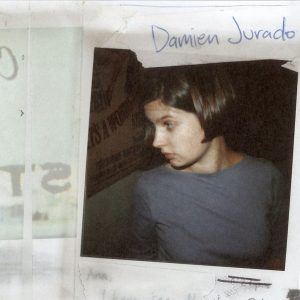 Damien Jurado
Damien Jurado
Ghost of David
Musicians often claim songwriting is a cheap form of therapy. In Damien Jurado’s case, it could add up to untold thousands in savings. That is, if the disturbing confessions on this tightly wound urban folkie’s third CD have any basis in reality. Something tells me they do — or maybe I just find it less disturbing than the idea that these haunting, starkly rendered tales of death, betrayal and ordinary madness are the product of his imagination. Take Medication, in which a man watches his schizophrenic sibling undergo shock therapy. Or the Ghost of David, in which the titular specter is seen roaming the house where he died in childhood. Then there’s Desert, with its clearly articulated abandonment issues: “Given a chance, you’d stab my back and leave me here to die.” That most of these songs are delivered in Jurado’s insecure warble and set against a backdrop of lonely, tentatively plucked acoustic guitar just makes them all the more riveting. And more genuinely spooky than anything a dozen Marilyn Mansons could write. Somebody get this guy to a couch and fast.
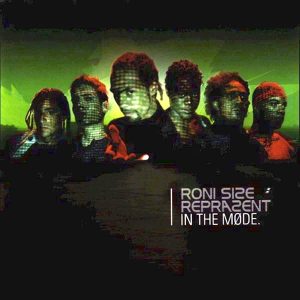 Roni Size & Reprazent
Roni Size & Reprazent
In the Mode
Bristol DJ and producer Roni Size’s ’97 debut New Forms was an aptly titled breakthrough in electronica, thanks to its hypercharged fusion of futuristic drum ’n’ bass with bebop jazz. It was, and remains, untoppable. But his long-anticipated followup In the Mode comes as close as anything could. Returning to a dystopic urban-jungle landscape, Size and his backing quintet navigate a labyrinthine funhouse of smacking speed-freak beatboxes, disorienting vocal syncopation and brooding keyboard robotics familiar to fans. But compared with the impenetrable two-CD New Forms, In the Mode is an accessible affair. More of these tracks qualify as actual songs, with lyrics, verses and choruses amid the skeletal squiggles and slamming. Two standouts: In Tune With the Sound, with human beatbox Rahzel, who weaves his magic so seamlessly with Size’s you can’t tell where machines end and the humans begin; and Centre of the Storm, an epic hard-stepper starring ex-Rage Against The Machine singer Zack de la Rocha, who whips himself into a lather as he rages with the machines for a change. Size may never beat New Forms, but In the Mode finds him in top form nonetheless.
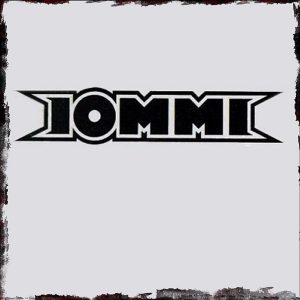 Iommi
Iommi
Iommi
If it’s good enough for Santana, it’s good enough for Satan. Apparently taking his cue from Supernatural, Black Sabbath guitar anti-hero Tony Iommi leads a cult of alt-rock stars on his eponymous solo album. But despite the continued presence of Iommi’s doom-laden guitar grind, the results are less than supernatural. The guys you expect to deliver — like Foo Fighters’ Dave Grohl or Smashing Pumpkins’ Billy Corgan — turn in second-rate plodders. And the less said about Billy Idol’s gawdawful Into the Night, the better — lines like “The undead souls who walk the night can suck my d—” make you long for the subtle poetry of Ozzy (who, FYI, joins on-again, off-again Sabs drummer Bill Ward on the mini-reunion grinder Who’s Fooling Who). In the end, it’s the dark horses who shine. Like The Cult’s Ian Astbury, meshing his neo-Morrison wail with the lizard-king stomp of Flame On. Or Type O Negative’s Peter Steele, whose vampyric lisp was tailor-made for Just Say No to Love. The winner, though, is punk Henry Rollins, whose snarling, barking Laughing Man (in the Devil Mask) succeeds because he’s one of the only singers not doing a bad Ozzy impression (including Ozzy). Maybe the devil made him do it.
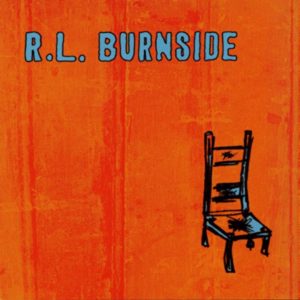
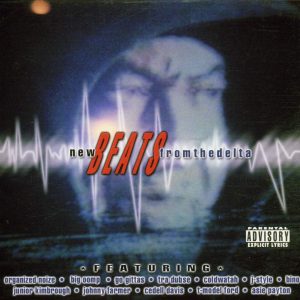 R.L. Burnside
R.L. Burnside
Wish I Was in Heaven Sitting Down
Various Artists
New Beats From the Delta
On 1998’s Come On In, bluesman R.L. Burnside allowed his raw-boned junk-joint stomp to be carved up and bolted on to hip-hop loops, samples and beats. In doing so, he scored his biggest hit — which explains why both his new CD and a compilation from his Fat Possum home label take a similar genre-blending tack. In Burnside’s case, it pays off big-time — Wish I Was in Heaven Sitting Down is his finest work since 1996’s A Ass Pocket of Whiskey and the best-sounding album of his career. Adopting a more holistic approach than Come On In, Heaven finds R.L. integrating his gruff holler and gutbucket moan with a crack band (including a turntablist and Beck guitarist Smokey Hormel) that respectfully nudges his old-school magic into the new millennium. Purists may bemoan its distance from the Delta, but the cutting-edge shuck ’n’ jive of Miss Maybelle and the fatback funk of Chain of Fools more than make up for any lack of Mississippi mud. And if it’s natural blues you want, check out Hard Time Killing Floor and R.L.’s Story, where Burnside recalls how his brothers, father and uncle all were slain in one year. Bottom line: R.L. is 73. He’s had heart surgery. Before he gets that title wish, he deserves a great album that wasn’t recorded in a shed. Wish I Was in Heaven is it. At least, it beats New Beats From the Delta, which mixes tracks of cohorts like Junior Kimbrough and Cedell Davis with Southern gangsta rap. Cool concept — but the reality doesn’t live up to it. Most of the hip-hoppers (Go Gittas Camp, Big Oomp and other obscure acts) do little besides sample a guitar lick and a chorus line, then write booty-bounce beats and raps around them. Still, a few — like on Organized Noize’s inspired, bluesy reworkings of Johnny Famer’s Death Letter — add new dimensions to the originals. And of course, wild man T-Model Ford’s put-my-foot-in-your-ass blues takes a backseat to nobody. He’s a bigger gangster than these kids could ever be.
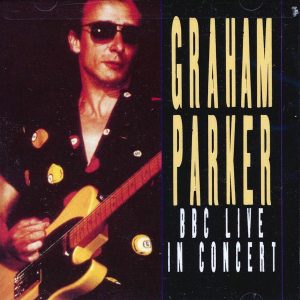 Graham Parker
Graham Parker
BBC Live in Concert
In the new wave ’70s, angry young man Graham Parker capably filled a niche somewhere between Bruce Springsteen, Van Morrison, Elvis Costello and The Clash. Like the first two, he had a working-class background and a troubadourish bent; like the last two, he had a jaundiced worldview and a pugilistic stance. This electric live compilation captures him at the height of his powers, spitting out pub-rock-inspired gems like Soul Shoes, Local Girls and Back to Schooldays to the magnificent strains of his peerless band The Rumour. For fans, nearly every track is a highlight, from the title cut of his debut Howling Wind to Mercury Poisoning, his venomous rant at his record label. A double album would have been better, and for my taste there are a few too many ’80s tracks like Hit the Spot and No More Excuses. Even so, this is a welcome reminder of the days when passion was no ordinary word.
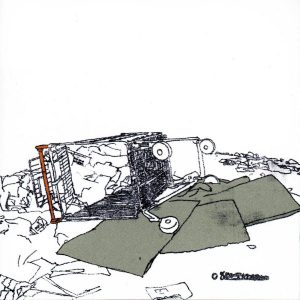 Gomez
Gomez
Abandoned Shopping Trolley Hotline
British neo-bluesmen Gomez are in a weird position. Not only are their between-album singles and EPs better than their contemporaries’ full-length releases — but lately they’ve become more satisfying than their own albums. This collection of singles, B-sides, live cuts and various odds ’n’ ends (which comes barely six months after the superior Machismo EP) beats their tepid ’99 release Liquid Skin handily. Closer in feel to the free-wheeling debut Bring it On, Shopping Trolley’s 15 tracks are brimming over with Tom Waitsian subterranean plink-plunk (Emergency Surgery), smoky slide-guitar blues (Bring Your Loving Back Here), twisted roots and jazz (Flavors, Hit on the Head), and, in general, some of the most inventive songcraft this side of Radiohead. Plus you get their version of The Beatles’ Getting Better from those Phillips electronics ads. With singles this flawless, you won’t care if they never make a proper album again.
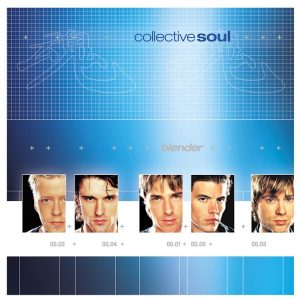 Collective Soul
Collective Soul
Blender
Collective Soul always seem to want it both ways. Ever since their first hit Shine, it seems they’ve been trying to straddle a fence between post-grunge credibility and radio-friendly commerciality. That balancing act continues on their curiously eclectic fifth release Blender. We say curious because for a guy from Georgia who used to emulate Kurt Cobain, singer-songwriter Ed Roland sure sounds a lot like Bowie here. Tracks like Why Pt. 2 shimmer darkly with the low-register croon and brittle guitar-crunch of Tin Machine’s futurist-rock, while other tracks flirt with everything from funk to metallic electronica. If that isn’t weird enough, consider this: Immediately after converting Morphine’s You Speak My Language to a rip-snorting rocker, Ed and co. duet with none other than Elton John on the trip-hoppy Perfect Day. A Blender of a disc, indeed.
 Dio
Dio
The Very Beast of
Leather-lunged vocalist Ronnie James Dio has one helluva hard rock resume. Short of stature but with a giant-sized voice, the singer cut his metal-god teeth with Richie Blackmore’s Rainbow and Black Sabbath before going on to form his own self-titled band with the likes of guitarist Vivian Campbell and drummer Vinnie Appice. Still, despite his pedigree and talented cohorts, a series of somewhat inconsistent albums kept Dio from duplicating the success of his previous acts. This typically thorough compilation from the archivists at Rhino mines the best tracks from the band’s seven Warner albums between 1983 and ’94, delivering devil-horn hair-metal hits like Holy Diver, Stand Up and Shout, We Rock and Last in Line without all the filler that usually surrounded them. A few Rainbow and Sabbath tracks would have completed the puzzle, although there is a live version of Man on the Silver Mountain from Intermission. OK, so maybe Dio is a guilty pleasure. But it’s still a pleasure.













